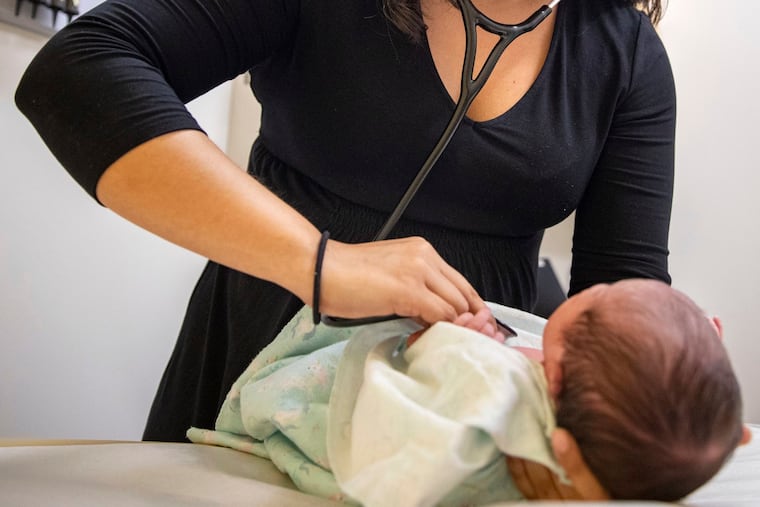Why Pennsylvania should extend Medicaid to immigrant women
It is much more expensive to save mothers’ and babies’ lives than it is to take basic steps to prevent emergencies.

The recent baby formula shortage is just the tip of the iceberg when it comes to challenges facing Pennsylvania moms.
I’ve been a public health worker with immigrants and refugees in Philadelphia for a decade, and I’ve seen that Pennsylvania has enormous issues with the way it treats immigrant moms and babies.
Right now, Pennsylvania’s Medicaid coverage for immigrants only covers prenatal and postpartum periods in pregnancy. That means women who are thinking about getting pregnant don’t get to benefit from advice that could prevent serious challenges during pregnancy like hypertension, diabetes, and more.
Preconception care is very important because it helps identify any potential health conditions that could put the mother’s or the baby’s health at risk before becoming pregnant.
Women who have health insurance often don’t realize they get preconception care as part of their regular trips to the doctor. They also don’t realize how important it is. But as part of a woman’s regular wellness visit, all women of reproductive age are asked about plans to conceive and screened for risk factors that could put her and the baby’s life at risk. Screening can include examining the size of the pelvis and the number of eggs a woman has, as well as asking questions that identify the risk of high blood pressure and gestational diabetes.
Women of reproductive age who have immigrated legally do not have access to health care if they have lived in the U.S. for less than five years, and so they often do not get vital preconception care. Data suggest there are nearly 450,000 immigrant women living in Pennsylvania, and that about a quarter of those women are of reproductive age.
The United States has some of the worst maternal and infant health outcomes of all developed countries. In Pennsylvania, data show many babies of immigrant mothers are born underweight, in significant part because of the lack of prenatal care. I have also personally seen many serious medical conditions such as gestational diabetes during my work at clinics doing prenatal case management. Most of these conditions are preventable if the mother receives adequate care.
Undocumented immigrant women are completely excluded from Medicaid eligibility in Pennsylvania. That means a woman is unlikely to have access to care during pregnancy and the postpartum period, not to mention during the preconception period. These women are only provided access to state-supported medical care for the delivery of their baby under a state provision for an “emergency medical condition.” It should not be surprising that undocumented mothers are more likely to experience pregnancy complications and poor health outcomes.
We can change this system, which is failing immigrant mothers.
Medicaid was set up to give health care access to low-income and other vulnerable people. The state administers the program within federal eligibility requirements and has the flexibility to expand eligibility beyond federal standards.
» READ MORE: Like many Black women, I faced implicit bias during childbirth — but help is on the way | Expert Opinion
It makes economic sense for the state to expand Medicaid to cover preconception care for immigrant women and expand Medicaid eligibility to undocumented women as well. It is much more expensive to save mothers’ and babies’ lives than it is to take basic steps to prevent emergencies. It’s simply more cost-effective.
These changes are feasible and obtainable. Eighteen other states are providing some level of public insurance to pregnant undocumented immigrants. Several other states are exploring ways to expand Medicaid or Children’s Health Insurance Program coverage to all income-eligible people, regardless of immigrant status, and removing the five-year bar on Medicaid for immigrants.
Even more important than expanding coverage to save costs, from my perspective, is the moral argument. This is an issue of health justice and equity. Pennsylvania’s legislators and public health professionals have an ethical obligation to use their knowledge and skills to promote equitable maternal health care to all reproductive-age women in our state. Even if the federal government does not uphold this standard, Pennsylvania has a moral obligation to do so.
Matilda Issata Sawie is a former refugee originally from Liberia. She is the Refugee Congress delegate for Pennsylvania and a master’s student of public health at West Chester University.